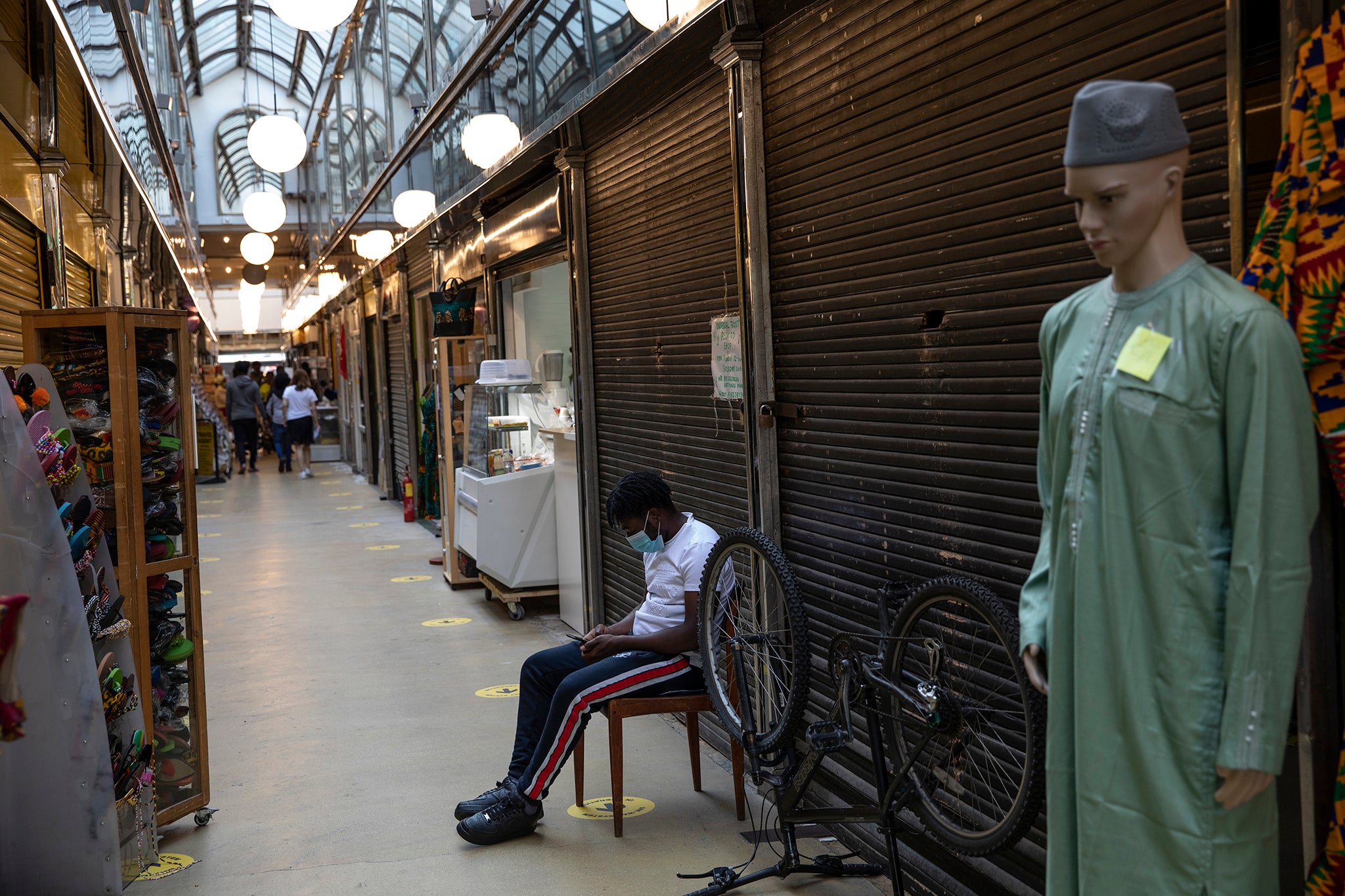I fled war in Syria to the UK – now I’m helping other refugees like me cope with the coronavirus pandemic
Trying to navigate your way through a new culture, language and way of life is challenging, but even more so when Covid-19 sparks chaos, fear and uncertainty


Your support helps us to tell the story
From reproductive rights to climate change to Big Tech, The Independent is on the ground when the story is developing. Whether it's investigating the financials of Elon Musk's pro-Trump PAC or producing our latest documentary, 'The A Word', which shines a light on the American women fighting for reproductive rights, we know how important it is to parse out the facts from the messaging.
At such a critical moment in US history, we need reporters on the ground. Your donation allows us to keep sending journalists to speak to both sides of the story.
The Independent is trusted by Americans across the entire political spectrum. And unlike many other quality news outlets, we choose not to lock Americans out of our reporting and analysis with paywalls. We believe quality journalism should be available to everyone, paid for by those who can afford it.
Your support makes all the difference.Fleeing the Assad regime in Syria was a difficult yet brave decision. I had to say goodbye to my home, to rebuild my life away from violence, terror, and tyranny.
After living in a country torn apart by war, it was a relief to arrive somewhere peaceful. But it was nerve-wracking when we first arrived in the UK. We spoke little English and I was embarrassed to talk in case I made a mistake. I didn’t know what that first 24 hours in the country held for us, yet I was comforted by the fact I had reached somewhere safe for my son.
I found refuge and now call the UK home. This year alone, 4,000 people have tried to do the same, but sadly, many have not been as fortunate as me.
I have overcome some difficulties in my life, namely when the Syrian forces threatened to cut off my hand because I was a journalist in Damascus, speaking out against Assad’s violence, but being a refugee during the coronavirus pandemic is as hard as you can imagine.
Trying to navigate your way through a new culture, language and way of life is challenging, but even more so when chaos, fear and uncertainty surrounds you. Phrases like “don’t go outside” and “death toll” in a foreign language out of context can be worrying to hear, as it transports you back to previous times of turmoil you deliberately ran away from.
I have spent the past four months of lockdown working closely with local refugee communities in west London, translating the latest government guidance, trying to find out when schools will reopen for their children, and accompanying many to doctors’ appointments. People like me are trying to help bridge the gap between the authorities and minority communities, to help better understand and connect with each other.
Just like I felt it was a personal duty to speak out against the unfolding corruption in Syria, I now feel equally compelled to give back to others whose shoes I once wore. As an NHS first responder, I’m proud to help my country and being a refugee does not mean I am exempt from giving back to my community too. I was once that person, unsure of how to ask for medicine, what news to believe or what shops to go to, and now, what social distancing measures to take.
It’s heartbreaking to see anti-migrant narratives circulating online and on social media. Bame communities, including the refugee population, were criticised for not adhering to social distancing rules. Nobody is doing this on purpose, but when there are language barriers and cultural differences, we must be kind and help others as much as we can, regardless of our backgrounds. Especially when many of the nurses and doctors on the front line fighting the spread of the virus are migrants themselves.
There is often an overwhelming feeling of security that comes with moving to a country like the UK, where you know you are protected, and you would think the relief of finally being safe from danger would mean life becomes easy, but this is not always the case. Many, myself included, find that once the immediate threat has gone, we are faced with the emotional issues that arise from having lived under constant fear. For years I was afraid to answer the phone thinking it might be the Syrian intelligence services calling me in again for interrogation, even when I was 3,000 miles away.
Nobody flees their home unless it is a life-or-death situation. That is what people must remember. Refugees are just like everyone else and my experience is by no means unusual.
My advice to refugees is to not be scared, there are many out there willing to help. There is no easy solution and it is an ongoing struggle for communities to unite, but coronavirus is presenting us with that opportunity. The UK offers us a haven some people can only dream of.
Bahia Mardini has dedicated her life to help refugees like herself and is an active human rights defender. For World Humanitarian Day on 19 August, Bahia is encouraging everyone to unite as we continue to fight coronavirus
Join our commenting forum
Join thought-provoking conversations, follow other Independent readers and see their replies
Comments